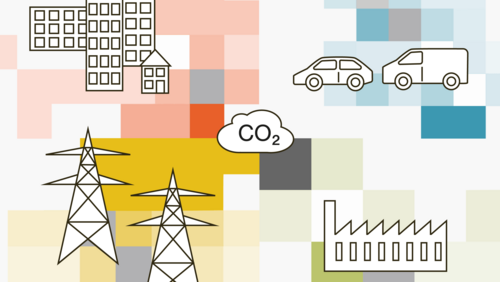
Protecting our planet
Oceans, soils, the atmosphere: if we humans continue to deplete the earth’s natural resources, we will destroy the basis of our existence. At the Potsdam Institute for Climate Impact Research, scientists in the FutureLab CERES team are studying how nations can ensure sustainable management of the global commons. The first step requires a paradigm shift in how we define wealth – it’s critical that natural capital be included.
The climate crisis has shown how overusing the earth’s natural resources endangers the future of our planet – and of humanity. The team at FutureLab CERES at the Potsdam Institute for Climate Impact Research are seeking to understand which political instruments will best promote the sustainable management of natural capital. Their focus lies on nations whose role in the protection of such resources is of great importance – for instance, Brazil, Indonesia, Columbia and the Democratic Republic of the Congo.
Ceres is the Roman goddess of agriculture – and is also said to be a legislator. It is this intersection between natural resources and governmental action that forms the topic of research at FutureLab CERES at the Potsdam Institute for Climate Impact Research, which receives funding from the Werner Siemens Foundation. The main questions address the political measures that would effectively protect our climate, biodiversity, oceans and soils – and what stops policymakers from enacting these measures.
The project’s aim is nothing short of realigning our economic system according to new, sustainable priorities. Today, gross domestic product (GDP) is the major indicator of a country’s wealth and the success of its economy. However, GDP as a measurement takes no account of the natural world. According to some estimates, the earth’s “natural capital” – natural resources – has shrunk by forty percent over the past thirty years. To protect and guarantee sustainable use of the oceans, biosphere and atmosphere, any future wealth index must include the global commons.
Research at CERES is divided into four priority areas. One research priority is dedicated to analysing the political instruments capable of ensuring inclusive wealth. The spotlight is placed on countries like Brazil, Indonesia, Columbia and the Democratic Republic of the Congo, which have a central role in the protection of natural resources. Although biodiversity in these nations is exceptional, they also face huge climate-related disasters – and they generate high revenues through the extraction of fossil fuels and rare earth elements, or through deforestation.
Facts and figures
Project leader
Prof. Dr Ottmar Edenhofer, Co-Director and Chief Economist at the Potsdam Institute for Climate Impact Research (PIK), Potsdam bei Berlin, Germany
Project partner
Mercator Research Institute on Global Commons and Climate Change (MCC), Berlin, Germany
Project
The team at FutureLab CERES at the Potsdam Institute for Climate Impact Research are studying the political economy of the global commons. The central question addresses how nations can promote sustainable management of natural resources such as the atmosphere, biosphere and oceans.
Support
The Werner Siemens Foundation has awarded the lab a ten-year grant.
Funding from the Werner Siemens Foundation
10 million euros over 10 years
Project duration
2022 to 2031




